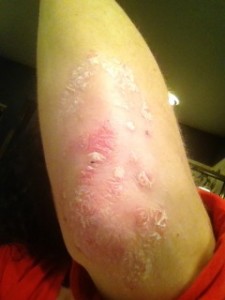A new study shows that children who were given antibiotics in babyhood are almost twice as likely to grow into kids with food allergies. The authors, from South Carolina College of Pharmacy in Columbia, theorize that the early disruption of normal flora and fauna in the digestive tract by antibiotics lead to a loss of oral tolerance levels and development of allergies as the child grows.
I can’t say I was shocked to see this information, though it’s always good to see clinical results in a scientific study like this to convince people.
When we take antibiotics, the drugs kill all the bacteria in our body – the good along with the bad. Good bacteria assist us in normal digestive processes and are necessary for complete digestion and assimilation of nutrients into our bodies. We can replenish good bacteria by taking probiotics, but they are limited and unfortunately cannot precisely recreate the complex biome that should be inside our guts.
In Chinese medicine, it is taught that the digestive system in children is not fully developed until they reach six years of age. The Chinese realize that it takes time to build up the bacteria and other life forms in our guts that help keep us healthy.
The study noticed that many of the study participants where given multiple rounds of antibiotics as babies to treat infected eczema. Eczema can usually be controlled with dietary changes in either the breast-feeding mother or the type of infant formula. Babies battling eczema should be tested for food allergies and food sensitivities before they get to a point of multiple infections and repeated rounds of antibiotics that set them up for more food allergies and sensitivities.
The reason I was not surprised to see the results of this study is that I believe a pre-natal course of inter venous antibiotics administered during the ninth month of my pregnancy to address an infection of listeria resulted in my baby’s 41 food and chemical sensitivities. I know it was a necessary action because listeria likes to take up residence in the placenta and cause stillbirth, but none of my medical caregivers ever mentioned how it might affect my baby’s life once he was born. The entire focus was on getting him born alive, and as a result of the infection and treatment he suffered terribly in constant pain and discomfort for the first six years of his life.
If your baby is suffering, it may be due to what he is eating. There are things we can do to help ease his pain and heal his body even if he is still breastfeeding. Feel free to contact me for a free consultation about what can be done.



